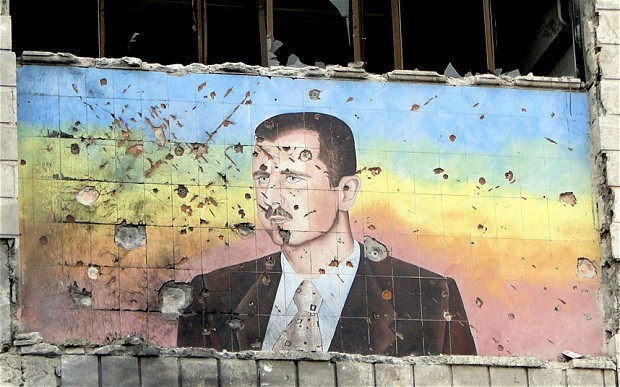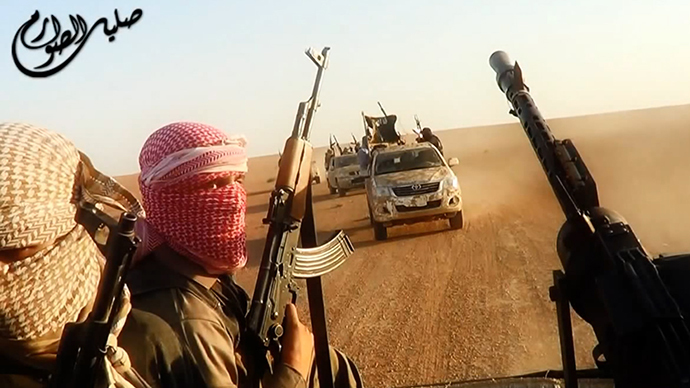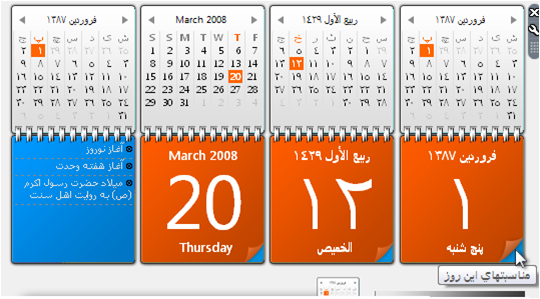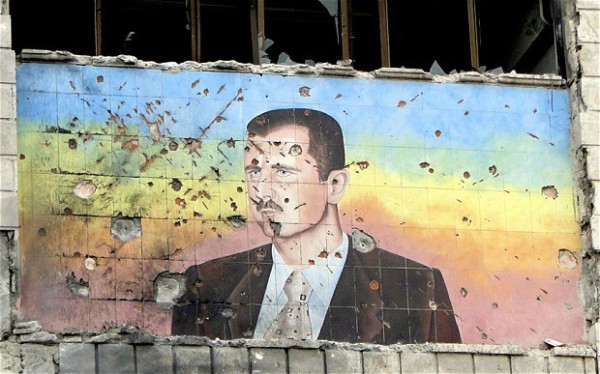
On April 27th, Syria missed a deadline to remove all materials used in chemical weapons production from within its borders, having only removed 92.5% of the stockpile. The Joint Mission between the Organization for the Prohibition of Chemical Weapons (OPCW) and the United Nations in Syria released a briefing soon after, urging Syria to finish the job as quickly as possible. Almost at the same time, allegations of barrel-bombings using chlorine gas emerged in parts of the country, with formal assessment of the allegations by the OPCW still pending. Chlorine gas is not amongst the chemicals the government is required to hand over, raising the question of whether President Bashar al-Assad may be able to use his participation in international agreements to cultivate an appearance of cooperation and control that cements his hold on the country despite the ongoing civil war. Confirmation of the allegations would point to the exploitation of a loophole – a clear indicator that any commitment to the chemical weapons ban extends no further than the exact demands of international agreements.
This effort to keep up appearances is embodied in President Assad’s campaign for the next presidential election, which he is expected to win. New changes to the Syrian constitution require that “opposition” candidates competing against President Assad get support from members of the regime-supporting parliament. The new rules also restrict the pool of eligible candidates to people who have lived in Syria for the past decade. This prevents opposition candidates who went into exile in order to avoid being killed from running for the presidency. The mass displacements that have created over 2.5 million refugees also constitute an obstacle to a fair election, with many of the most impacted populations living outside the country. The election’s outcome will inevitably prolong the civil war and put in place an indefinite break from accountability for war criminals on both sides of the conflict.
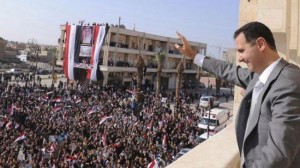
In a UN Report published in March, human rights investigators held both rebel groups and government armed forces responsible for gross human rights violations throughout the three-year conflict. The report condemned the UN Security Council for allowing both sides of the conflict to commit war crimes with impunity, and called on states with influence over the armed opposition to enforce the groups’ compliance with the Geneva Conventions. The human rights commission that produced the UN report urged the Security Council to bring the belligerents to the International Criminal Court (ICC), but the Security Council’s members have been reluctant to take that course of action. Different world powers have supported different sides of the conflict at different times, which has only strengthened the warring parties’ capacity to create chaos.
The report revealed that both sides used siege tactics against civilians, imposing tight barriers to prevent escape and block out humanitarian assistance. In besieged areas, essential infrastructure such as medical facilities, water tanks, and power generators were subject to an indiscriminate campaign of aerial bombardment, leaving little access to food or supplies for the estimated 250,000 civilians still trapped there.
The opposition, a heavily splintered force of fundamentalist groups, terrorists, and activists, were no less to blame for the gross violations of international law that have become a defining trait of the Syrian conflict. Fundamentalist groups such as the Islamic State of Iraq and A-Sham (ISIS) have been responsible for public lashings, kidnappings, and rape. This is aside from the bombings, massacres and other terror tactics used against groups perceived to be sympathetic to the government. The March report confirms what many already suspected: that nowhere is safe for Syria’s dwindling civilian population, regardless of affiliation.
The lack of agreement in the UN Security Council about what should be done in Syria has made it extremely difficult for any kind of action to be taken to address what have been described as war crimes. In a resolution adopted in late February, the Security Council commanded the fighters to allow for the delivery of humanitarian aid to Syria, with the vague threat of “further steps” in case of non-compliance – the resolution contained no mention of sanctions nor of any form of tribunal for those charged with war crimes.
The report, which covers investigations of events that took place between July 15th 2013 and January 20th 2014, cites the Geneva II conference as the “most serious diplomatic initiative so far” to address the conflict in Syria, though it did little more than set a proposed agenda for the next round of talks. The conference resulted in a call for an immediate ceasefire, the development of a transitional government, and delivery access for humanitarian assistance. However, no mechanism was put in place to enforce a ceasefire, and President Assad’s campaign for re-election makes the formation of a representative transitional government an unlikely prospect.
Since the Geneva conference, new developments have largely confirmed that accountability for war crimes will remain off the table more or less indefinitely. By focusing mainly on their removal of chemical weapons from Syria, the international community has made considerable progress in their removal at the expense of bringing to justice those responsible for their use. The Security Council must reflect on its responsibility to the people of Syria in the long term, which includes helping to bring the civil war to a just resolution. Restriction of weapons flows, strong international support for the negotiations, and humanitarian assistance during the transitional period may help lift the country out of chaos, but without a more robust mechanism of accountability for war criminals, the rewards of diplomacy may prove to be short-lived.

